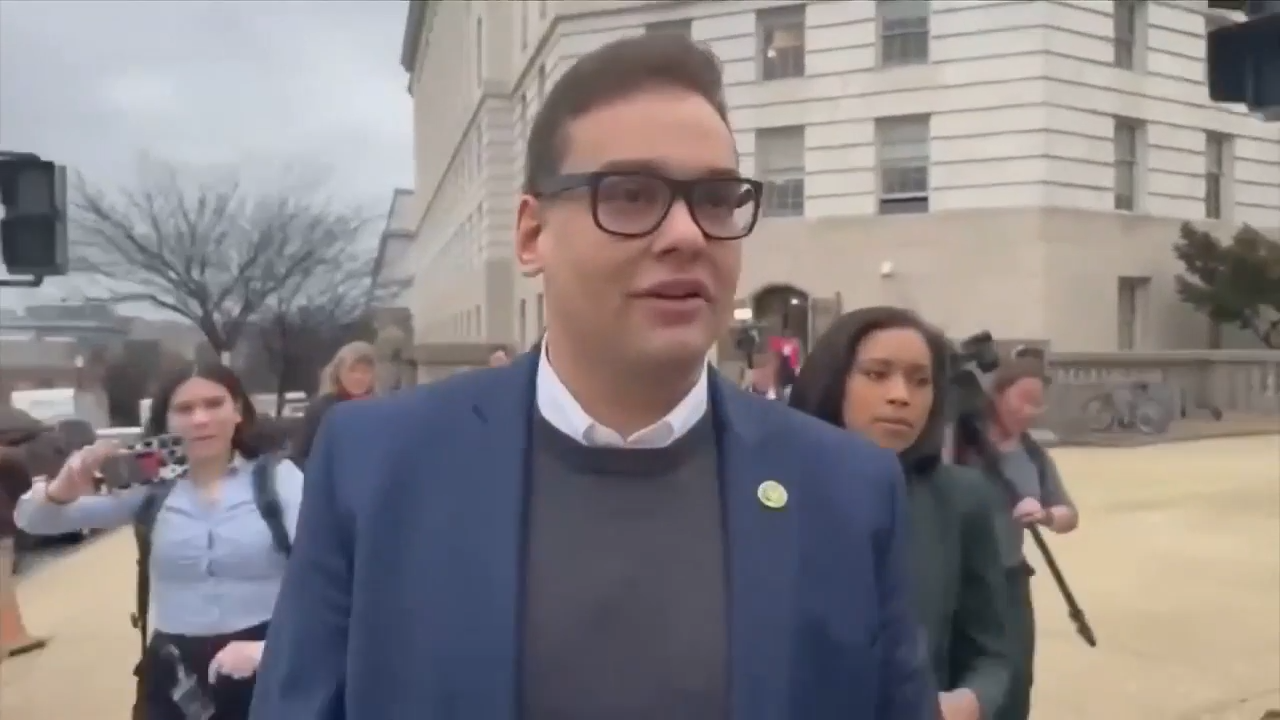NEW YORK (AP) — President Donald Trump announced Friday that he had commuted the sentence of former U.S. Rep. George Santos, who is serving more than seven years in federal prison after pleading guilty to fraud and identity theft charges.
The New York Republican was sentenced in April after admitting last year to deceiving donors and stealing the identities of 11 people, including his own family members, to make donations to his campaign. He reported to the Federal Correctional Institution in Fairton, southern New Jersey, on July 25, and is currently housed in a minimum security prison camp with fewer than 50 other inmates.
“I just signed a Commutation, releasing George Santos from prison, IMMEDIATELY,” Trump posted on his social media platform. “George Santos was somewhat of a ‘rogue,’ but there are many rogues throughout our Country that aren’t forced to serve seven years in prison,” he added.
Andrew Mancilla, one of Santos’ lawyers, expressed his satisfaction with the decision. “I am very, very happy with the decision,” Mancilla said Friday, though he noted it’s unclear at this point when Santos will be released. “The defense team applauds President Trump for doing the right thing,” he added. “The sentence was far too long.”
Santos has been in prison for 84 days. During his time behind bars, he has been writing regular dispatches in the local Long Island newspaper, The South Shore Press. In his latest letter, published October 13, Santos directly appealed to Trump, citing his loyalty to the president’s agenda and the Republican Party.
“Sir, I appeal to your sense of justice and humanity, the same qualities that have inspired millions of Americans to believe in you,” he wrote. “I humbly ask that you consider the unusual pain and hardship of this environment and allow me the opportunity to return to my family, my friends, and my community.”
A prominent former House colleague, U.S. Rep. Marjorie Taylor Greene, also urged the White House to commute Santos’ sentence. In a letter sent just days after Santos began his prison term, Greene called the punishment “a grave injustice” and a product of judicial overreach.
The judge in Santos’ case had agreed with federal prosecutors that a stiffer sentence was warranted because Santos did not appear remorseful, despite his and his lawyers’ claims to the contrary.
Santos’ commutation marks Trump’s latest high-profile act of clemency for former Republican politicians since resuming the presidency in January. In late May, he pardoned former U.S. Rep. Michael Grimm, a New York Republican who pleaded guilty in 2014 to underreporting wages and revenue at his Manhattan restaurant. Trump also pardoned former Connecticut Governor John Rowland, whose promising political career was derailed by a corruption scandal and two federal prison stints.
Trump himself was convicted last year in a New York court in a case involving hush money payments, which he dismissed as part of a politically motivated witch hunt.
Once considered an up-and-coming star for the GOP, Santos became the first openly gay Republican elected to Congress in 2022, flipping a House seat representing parts of Queens and Long Island. However, he served less than a year in office after it was revealed that he had fabricated much of his life story. This revelation prompted investigations into how the then-unknown politician had funded his winning campaign.
A son of Brazilian immigrants, Santos claimed he was a successful business consultant with Wall Street credentials and a sizable real estate portfolio. He later admitted he had never graduated from Baruch College, nor had he been a standout player on the school’s volleyball team, as he had claimed. He never worked at Citigroup or Goldman Sachs and was not Jewish, contrary to his claims. Santos insisted he meant he was “Jew-ish” because of his mother’s Jewish heritage, although he was raised Catholic.
In reality, the then-34-year-old Santos faced financial struggles and even risked eviction. In 2023, he was charged with stealing from donors and his campaign, fraudulently collecting unemployment benefits, and lying to Congress about his wealth. Within months, he was expelled from the U.S. House of Representatives — just the sixth member in history to be ousted by colleagues.
Santos pleaded guilty the following year just as he was set to stand trial.

Be First to Comment